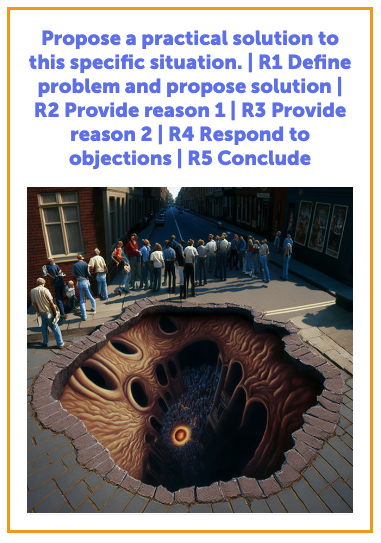
Propose a practical solution to this specific situation. | R1 Define problem and propose solution | R2 Provide reason 1 | R3 Provide reason 2 | R4 Respond to objections | R5 Conclude
Propose a policy solution to this general trend. | R1 Define problem and propose solution | R2 Provide reason 1 | R3 Provide reason 2 | R4 Respond to objections | R5 Conclude

